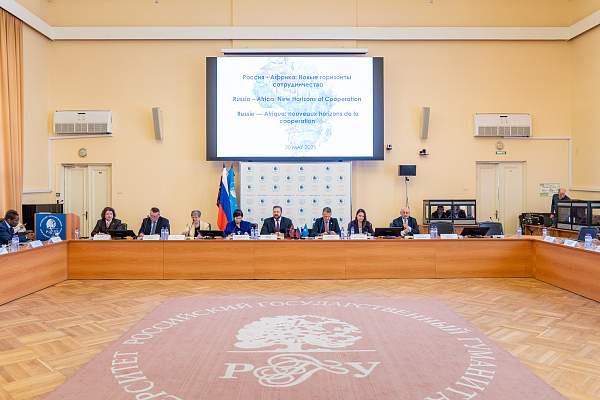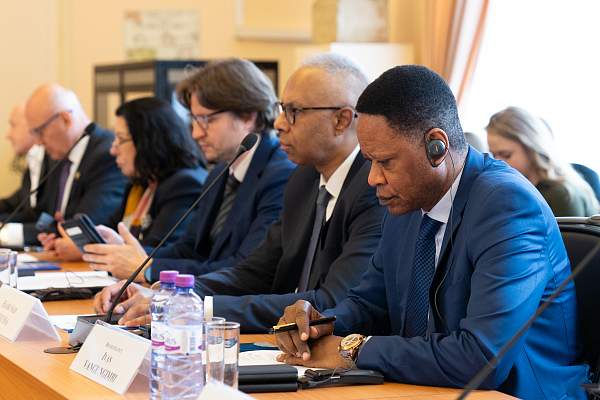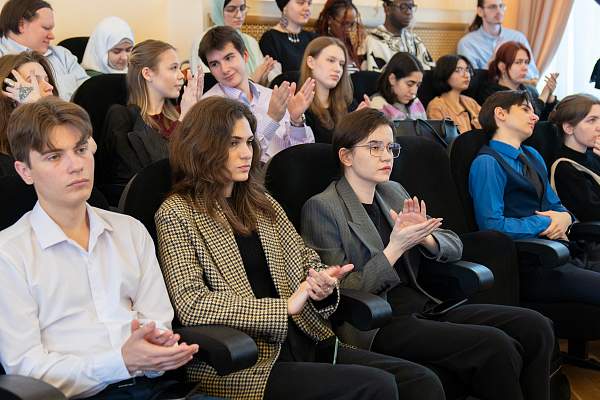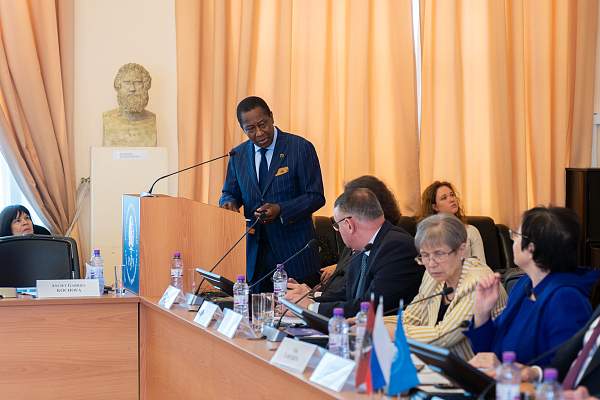Partnership of Equals: Humanitarian Dialogue between Russia and Africa
About humanitarian and educational bridges between Russia and Africa, equal dialog, historical memory and the continent, for the partnership with which the future lies.
 “In recent years, our relations with the continent have experienced a real revival. Among the unifying factors is the rejection of modern practices of neocolonialism and the desire to form a more equitable multipolar world order,”said the welcoming speech of Russian Foreign Minister Sergey Lavrov, read by Director of the Department for Partnership with Africa of the Russian Foreign Ministry Tatyana Dovgalenko on May 20 during the International Scientific and Practical Conference ‘Russia-Africa: New Horizons of Cooperation’, timed to coincide with World Africa Day.
“In recent years, our relations with the continent have experienced a real revival. Among the unifying factors is the rejection of modern practices of neocolonialism and the desire to form a more equitable multipolar world order,”said the welcoming speech of Russian Foreign Minister Sergey Lavrov, read by Director of the Department for Partnership with Africa of the Russian Foreign Ministry Tatyana Dovgalenko on May 20 during the International Scientific and Practical Conference ‘Russia-Africa: New Horizons of Cooperation’, timed to coincide with World Africa Day.
 The plenary session discussed key areas of partnership development between Russia and African countries, including expansion of scientific and educational cooperation, personnel training, strengthening humanitarian ties, countering neo-colonialism and joint historical and cultural projects.
The plenary session discussed key areas of partnership development between Russia and African countries, including expansion of scientific and educational cooperation, personnel training, strengthening humanitarian ties, countering neo-colonialism and joint historical and cultural projects.
On the margins of the conference, participants and guests could familiarize themselves with the archival and documentary exhibition dedicated to the role of our country in the struggle of African peoples against colonialism.
 “An important achievement of RSUHU was the archival and documentary exhibitions organized by the International Centre for Applied African Studies. They became the first visual and accessible to the general public in recent decades reminder of the role of the USSR and Russia in liberating the African continent from colonialism and a unique educational and outreach project implemented to shape the views of the country's new generation,” shared Dmitry Bobrov, First Vice-Rector of RSUH.
“An important achievement of RSUHU was the archival and documentary exhibitions organized by the International Centre for Applied African Studies. They became the first visual and accessible to the general public in recent decades reminder of the role of the USSR and Russia in liberating the African continent from colonialism and a unique educational and outreach project implemented to shape the views of the country's new generation,” shared Dmitry Bobrov, First Vice-Rector of RSUH.
 The conference also discussed the demographic specifics of the African continent and related challenges and opportunities in education, employment and social policy. Vera Zabotkina, Acting Vice-Rector for International Cooperation of RSUH drew attention to the fact that half of the population of African countries are 17 years old young people, which makes Africa the youngest place in the world.
The conference also discussed the demographic specifics of the African continent and related challenges and opportunities in education, employment and social policy. Vera Zabotkina, Acting Vice-Rector for International Cooperation of RSUH drew attention to the fact that half of the population of African countries are 17 years old young people, which makes Africa the youngest place in the world.
A separate topic was strengthening the role of Russian and Soviet university graduates as “ambassadors of people's diplomacy” capable of promoting Russian interests and values, including in Africa. Aniset Gabriel Kochofa, member of the State Duma's Expert Council on Partnership with Africa, emphasized that today more than one and a half million graduates of Soviet and Russian universities are already working successfully around the world.
“Do you know where these specialists were trained? In Russia. And in what language? In Russian,” emphasized Anicet Gabriel Kochofa.
 The meeting touched upon Africa's enormous natural and energy potential - from mineral resources to solar energy - as a basis for strategic partnership. In addition, there were initiatives to create new formats of cooperation, such as Foresight Dialogue and international educational clusters focused on training the next generation of leaders.
The meeting touched upon Africa's enormous natural and energy potential - from mineral resources to solar energy - as a basis for strategic partnership. In addition, there were initiatives to create new formats of cooperation, such as Foresight Dialogue and international educational clusters focused on training the next generation of leaders.
Mr. M.N. Zalyvsky, Head of the project office of the “Russian-African Network University” Consortium (RAFU) took part in the Conference.
The event was organized by the Russian State University for the Humanities in cooperation with the Russian Association for International Cooperation, the Russian Historical Society, the History of the Fatherland Foundation and the Roschaycoffee Association.